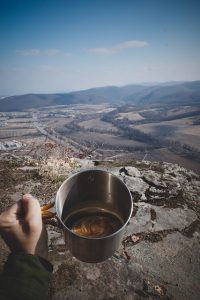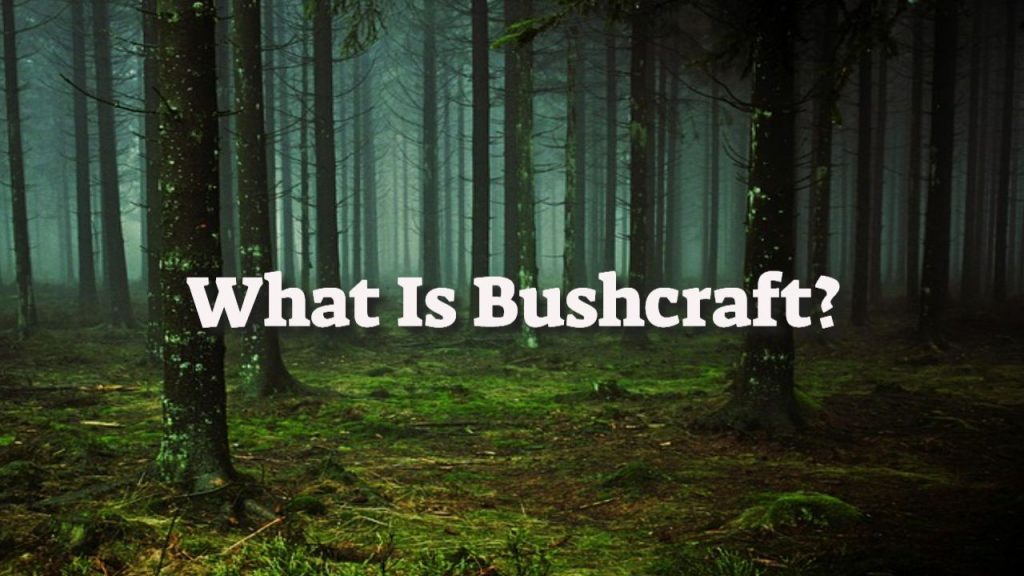What Is Bushcraft? Skills for Survival and Self-Reliance
Exploring the World of Bushcraft
What exactly is “Bushcraft”? It’s a term gaining popularity over the past several years, but many people are still lost in understanding its notion. In its purest form, bushcraft refers to the process of acquiring and perfecting skills that are necessary to live in and thrive within a natural setting. It is a means of developing a connection with the natural world, understanding it, and showing respect for it. In this piece, we will go into the realm of bushcraft, discussing its history, fundamental concepts, basic abilities, as well as the benefits of getting started as well as how to get started.
Defining Bushcraft
History of Bushcraft: The hunter-gatherer lifestyle of our ancestors is where the practice of bushcraft got its start and has profound historical origins. To find food, construct shelters, and maintain their lives in the wild, early people had to rely on their knowledge of nature and employ primitive tools and techniques. These abilities developed over time and were passed down from generation to generation, eventually giving rise to modern bushcraft.
Relevance Today, The practice of bushcraft occupies a unique position in today’s world. It’s not just a pastime for people interested in survivalism; it’s also a way to forge a closer relationship with the natural environment. Surviving in natural environments is not only as essential as before the advent of modern technology and the spread of urbanization, but it is more important now than it was in the past.
Core Principles of Bushcraft
Living in Harmony with Nature The need to maintain a lifestyle that is in tune with one’s surroundings and the natural world is one of the fundamental tenets of bushcraft. It’s about coming to terms with the fact that nature is not an enemy to be defeated but rather a collaborator who deserves honored. The goal of bushcraft is not to dominate nature but rather to live in harmony with it.
Leave No Trace Those who participate in responsible bush crafting practice the “Leave No Trace” principle. They reduce the amount of harm they cause to the ecosystem by operating under the assumption that their existence in the wild is nearly undetectable. This involves engaging in responsible fire management practices, appropriately disposing of waste, and leaving the environment in the same pristine state that they discovered it in.
Self-Reliance Bushcraft is all about being self-sufficient. It provides individuals with the information and abilities necessary to flourish in the wilderness without relying on the luxuries of contemporary society. It’s getting down to the fundamentals, where the self is the most essential and precious resource.
Essential Bushcraft Skills
Shelter Building In the woods, having shelter is of the utmost importance. Bushcrafters acquire the skills to build various shelters, ranging from straightforward lean-tos to more complex A-frame constructions. These huts offer protection from the weather and a feeling of safety to those in the wilderness.
Firecraft Learning how to start and maintain fires is an essential part of bushcraft. The ability to create and maintain a fire in various environments is required, as fire is necessary for cooking, keeping warm, and signaling for aid.
Foraging is recognizing wild plants and mushrooms that can be eaten and learning how to prepare them without getting sick. When traveling into uncharted territory, having this talent guarantees a steady food supply.
Water Treatment and Purification Water is necessary for life, yet it can be difficult to locate clean water in the environment. Water is vital for survival. Water may be purified in a variety of ways that were discovered by bush crafters, including boiling the water, filtering it, and using purification tablets.
Direction finding When venturing out into the wilderness, having good navigational skills is necessary. Those who practice bushcraft acquire the skills necessary to navigate using a map and compass and to identify natural features. These abilities ensure they can navigate without getting lost and prevent them from becoming disoriented.

Advantages of Practicing Bushcraft
Betterment in Both One’s Physical and Mental Health Participating in bushcraft activities benefits one’s physical fitness, mental acuity, and ability to manage stress. Spending time in natural settings and honing one’s wilderness survival abilities can have a vital impact on both the body and the psyche.
Enhanced Connection with the Natural World: The practice of bushcraft instills in participants greater respect for the natural world and the interdependence of its components. It deepens people’s connections to the natural world and broadens their comprehension of the world around them.
Increased Capacity for Self-Sufficiency and Self-Assurance Learning bushcraft skills can instill a sense of self-sufficiency and confidence in one’s capacity to deal with difficult circumstances. Empowerment comes from the realization that one can survive independently in the wild.
Beginning Your Adventures in Bushcraft
Look for a Guide or Enroll in a Class. Finding a mentor or taking a course in bushcraft can be pretty advantageous for people just starting in the field of bushcraft. Working with one’s hands and receiving helpful direction are benefits of learning bushcraft from experienced individuals.
Begin with the fundamentals. To start with bushcraft, you should learn fundamental skills such as building a shelter, starting a fire without matches, gathering food, purifying water, and navigating. These are the fundamental abilities needed for bushcraft.
Exercise in the Context of Familiar Places Brushes up on your bushcraft abilities in your garden or in one of the nearby parks before travelling into remote wilderness areas. Your level of self-assurance and ability will increase in direct proportion to your familiarity with your environment.
Join a community that focuses on bushcraft. Establish connections with other bush crafters through local clubs and internet forums.
And social media groups. Being part of a community allows you to exchange knowledge and experiences with like-minded individuals.
The capacity to survive in the wilderness is only one benefit of learning bushcraft; other advantages include a more profound connection with the natural world, a heightened sense of self-reliance and confidence, and a deeper connection with nature. Bushcraft offers a meaningful opportunity to reclaim our primitive origins and live in the great outdoors, which is especially important in a world becoming increasingly disconnected from nature. We strongly recommend that you look into the field of bushcraft since it provides a great deal of benefits to people who are looking to develop a deeper connection with nature and a heightened sense of independence in the great outdoors.
The post What Is Bushcraft? Skills for Survival and Self-Reliance appeared first on Survivalbite.
The post What Is Bushcraft? Skills for Survival and Self-Reliance appeared first on https://gqcentral.co.uk



